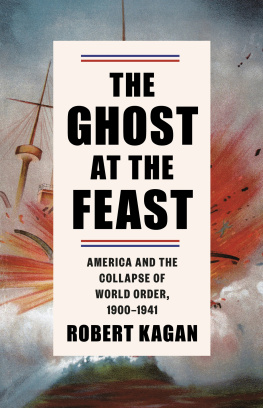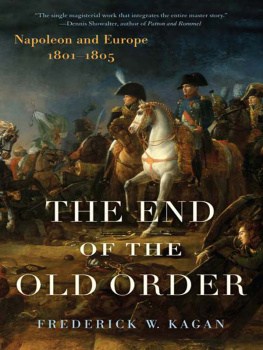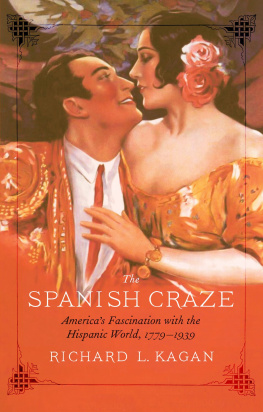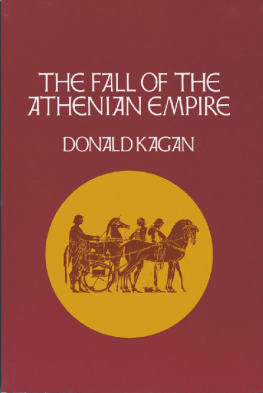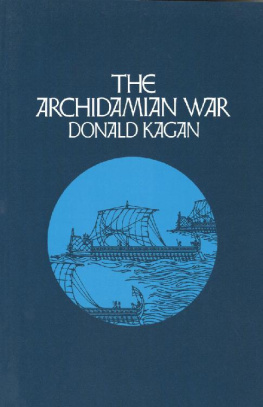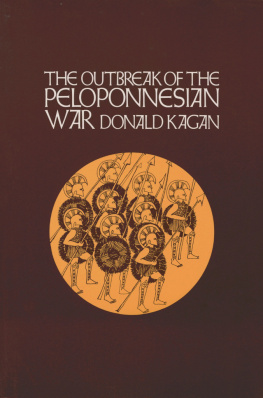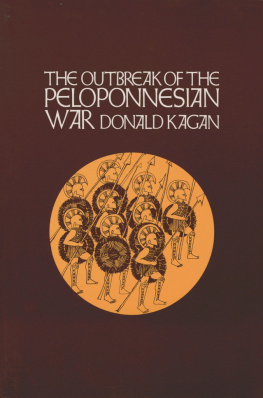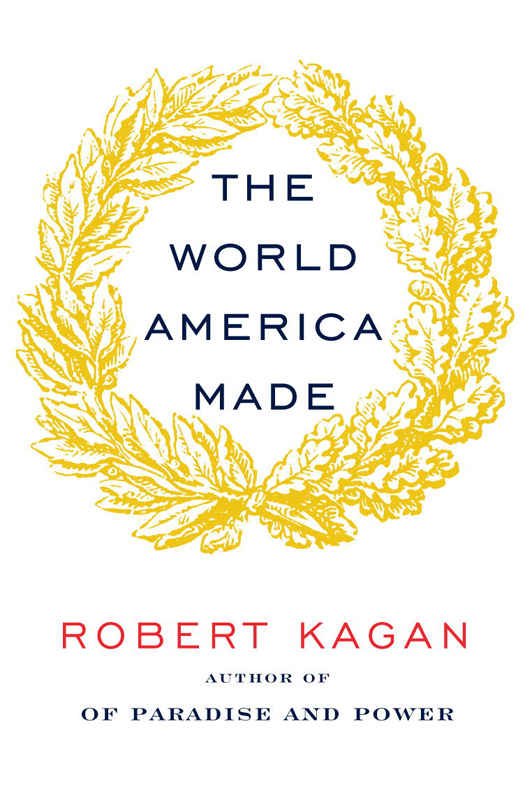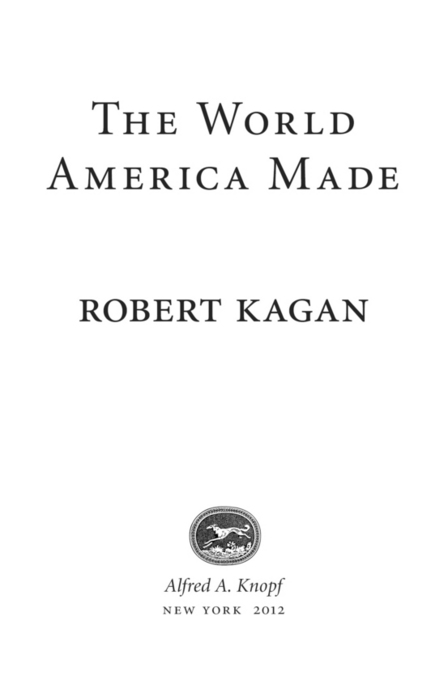ALSO BY ROBERT KAGAN
The Return of History and the End of Dreams
Dangerous Nation
Of Paradise and Power
A Twilight Struggle
Present Dangers
THIS IS A BORZOI BOOK
PUBLISHED BY ALFRED A. KNOPF
Copyright 2012 by Robert Kagan
All rights reserved. Published in the United States by Alfred A. Knopf, a division of Random House, Inc., New York, and in Canada by Random House of Canada Limited, Toronto.
www.aaknopf.com
Knopf, Borzoi Books, and the colophon are registered trademarks of Random House, Inc.
Library of Congress Control Number: 2012930723
eISBN: 978-0-307-96132-7
Jacket design by Carol Devine Carson
v3.1
For Tor
Contents
INTRODUCTION
I N THE F RANK C APRA classic Its a Wonderful Life, George Bailey gets a chance to see what his world would have looked like had he never been born. It would be nice if we could do the same for the United States, to see what the world would have looked like had the United States not been the preeminent power shaping it for the past six decades, and to imagine what the world might look like if America were to decline, as so many nowadays predict.
We take a lot for granted about the way the world looks todaythe widespread freedom, the unprecedented global prosperity (even despite the current economic crisis), and the absence of war among great powers. In 1941 there were only a dozen democracies in the world. Today there are over a hundred. For four centuries prior to 1950, global gross domestic product (GDP) rose by less than 1 percent a year. Since 1950 it has risen by an average of 4 percent a year, and billions of people have been lifted out of poverty. The first half of the twentieth century saw the two most destructive wars in the history of
Theres plenty wrong with our world, of course, but from the perspective of thousands of years of recorded history, in which war, despotism, and poverty have been the norm, and peace, democracy, and prosperity the rare exceptions, our own era has been a golden age.
Some believe this is the inevitable result of human progress, a combination of advancing science and technology, an increasingly global economy, strengthening international institutions, evolving norms of international behavior, and the gradual but inevitable triumph of liberal democracy over other forms of governmentforces of change that transcend the actions of men and nations.
But there is also another possibility. Perhaps the progress we enjoy was not an inevitable evolution of the human species but rather the product of a unique and perhaps fleeting set of circumstances: a particular arrangement of power in the international system that favors a certain worldview over others. Maybe if those conditions were to change, if power were to shift, then the characteristics of the world order would change, too. Perhaps democracy has spread to over a hundred nations since 1950 not simply because people yearn for democracy but because the most powerful nation in the world since 1950 has been a democracy. Perhaps the stunning global economic growth of the past six decades reflects an economic order shaped by the worlds leading free-market economy. Perhaps the era of peace we have known has something to do with the enormous power wielded by one nation.
History shows that world orders, including our own, are transient. They rise and fall. And the institutions they erected, the beliefs that guided them, and the norms that shaped the relations among nations within themthey fall, too. Every international order in history has reflected the beliefs and interests of its strongest powers, and every international order has changed when power shifted to others with different beliefs and interests. On some occasions, the prevailing world order has simply collapsed into disorder. When the Roman Empire fell, the order it supported fell, too. Not just Roman government and law but an entire economic system stretching from northern Europe to North Africa was disrupted and would take centuries to rebuild. Culture, the arts, even progress in science and technology, were set back for centuries. People lost the recipe for cement.
We saw a similar collapse of world order in our own time. The world we know today was erected amid the chaos and destruction following World War II and the collapse of the European-dominated order that had evolved over four centuries. That order was far from perfect: it produced many wars, an aggressive imperialism, and the widespread oppression of nonwhite races, but it also produced the conditions for an era of great human advances. By the late nineteenth century British control of the seas and the balance of great powers on the European continent together had provided the relative security and stability to allow a growth in prosperity, a modest if tenuous expansion of personal freedoms, and a world knit closer by the revolutions in commerce and communication we today call globalization. It kept peace among the great powers for almost four decades after the Napoleonic Wars, and for another four decades after the wars of German unification. It was so successful that many concluded at the dawn of the twentieth century that mankind had reached a summit of evolution and that major war and tyranny had become obsolete.
Yet with the outbreak of World War I, the age of settled peace and advancing liberalismof European civilization approaching its pinnaclecollapsed into an age of hyper-nationalism, despotism, and economic calamity. The once promising spread of democracy and liberalism halted and then reversed course, leaving a handful of outnumbered and besieged democracies living nervously in the shadow of their newly fascist and totalitarian neighbors. Suddenly it was a world filled with predatory leaders sitting atop predatory powers. The collapse of the British and European orders in the twentieth century did not produce a new dark agethough if Nazi Germany and imperial Japan had won the war, it might havebut the cataclysm it did produce was, in its own way, no less devastating.
Would the end of the present American order have less dire consequences? That is a question worth asking now, as so many contemplate the prospect of American decline. A surprising number of American intellectuals, politicians, and policy makers greet that prospect with equanimity. There is a general sense that the end of the era of American preeminence need not mean the end of the present liberal international order. The expectation, if not assumption, And there is an accompanying view that American decline is in any case already a fact of life, so whether it is a good thing or a bad thing, there is nothing we can do about it.
Against this backdrop, it is worth exploring to what degree the present world order depends on American power and its unique qualities. What would it mean for the future if the international order were no longer shaped primarily by the United States and like-minded allied nations? Who or what would take Americas place? And there is another set of questions, equally important: Is America really in decline? Or are Americans in danger of committing preemptive superpower suicide out of a misplaced fear of declining power?
MEET GEORGE BAILEY: WHAT IS AMERICAN ABOUT THE AMERICAN WORLD ORDER?
W HY CALL IT THE American world order at all? The United States has certainly not shaped the international environment by itself. Many other peoples, as well as broad historical forcesthe evolution of science and technology, fluctuations in the availability of natural resources, long-term economic trends, population growthhave also created todays world. Peoples on every continent have worked and suffered to lift themselves out of poverty and destruction and to make better lives for themselves and their children. The world is too big for any nation to shape by itself. Nevertheless, in any given historical period, the most powerful nations do put their own particular stamp on the international order, if only by virtue of their relative weight in the system. They establish many of the norms and rules of international behavior. They shape the nature of economic relations. They can even have influence in the realm of ideas and beliefs, including the way peoples worship their gods and the forms of government they consider legitimate. For many centuries the predominant power of China shaped the way millions of people throughout Asia thought, spoke, worshipped, painted, and carried on their commerce. In the nineteenth century, the great European powers imposed standards of international and domestic behavior not only for Europeans but for millions throughout Africa, Asia, and Latin America. There has been an Egyptian order, a Roman order, a Greek order, an Islamic order, a Mogul order, an Ottoman order, and many others, and historians will undoubtedly view the period from the end of World War II until some yet to be determined moment as an American order.


